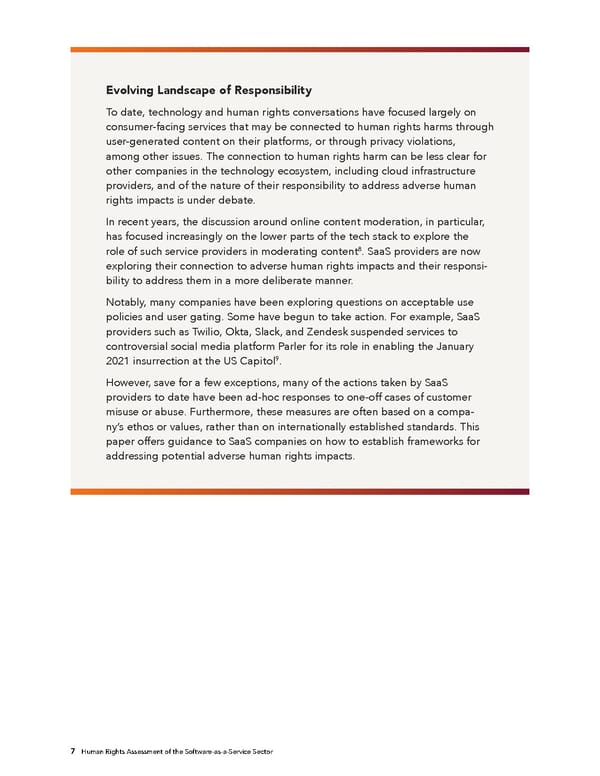Evolving Landscape of Responsibility To date, technology and human rights conversations have focused largely on consumer-facing services that may be connected to human rights harms through user-generated content on their platforms, or through privacy violations, among other issues. The connection to human rights harm can be less clear for other companies in the technology ecosystem, including cloud infrastructure providers, and of the nature of their responsibility to address adverse human rights impacts is under debate. In recent years, the discussion around online content moderation, in particular, has focused increasingly on the lower parts of the tech stack to explore the 8. SaaS providers are now role of such service providers in moderating content exploring their connection to adverse human rights impacts and their responsi- bility to address them in a more deliberate manner. Notably, many companies have been exploring questions on acceptable use policies and user gating. Some have begun to take action. For example, SaaS providers such as Twilio, Okta, Slack, and Zendesk suspended services to controversial social media platform Parler for its role in enabling the January 2021 insurrection at the US Capitol9. However, save for a few exceptions, many of the actions taken by SaaS providers to date have been ad-hoc responses to one-off cases of customer misuse or abuse. Furthermore, these measures are often based on a compa- ny’s ethos or values, rather than on internationally established standards. This paper offers guidance to SaaS companies on how to establish frameworks for addressing potential adverse human rights impacts. 7 Human Rights Assessment of the Software-as-a-Service Sector
 Human Rights Assessment of the Software-as-a-Service Sector Page 7 Page 9
Human Rights Assessment of the Software-as-a-Service Sector Page 7 Page 9